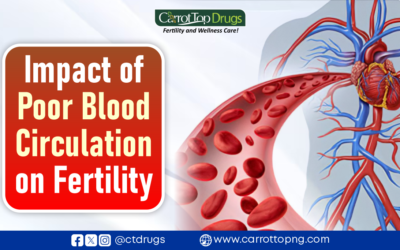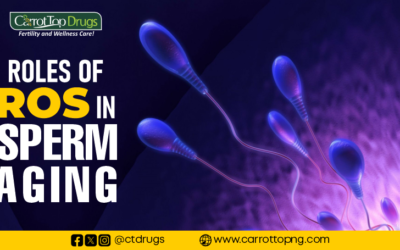Introduction:
Male erectile disorder, also known as erectile dysfunction (ED), is a condition where a man is unable to achieve or maintain an erection firm enough for sexual intercourse. ED can have a significant impact on a man’s self-esteem, relationships, and overall quality of life.
Prevalence of Male Erectile Disorder
Male erectile disorder is a sexual health issue that affects millions of men worldwide. It is characterized by the inability to get or maintain an erection sufficient for sexual intercourse. This condition can cause significant emotional distress, relationship problems, and self-esteem issues.
According to research, the prevalence of male erectile disorder increases with age. It is estimated that approximately 30 million men in the United States alone suffer from this condition. A study revealed that 5% of men aged 40 years and above have complete erectile dysfunction. It has also been revealed that by the age of 70, more than half of men experience some degree of erectile dysfunction. This problem is not limited to the US alone. In Nigeria, the percentage of men with erectile disorders is about 45.7%. The prevalence of male erectile disorder is higher in men with underlying medical conditions such as diabetes, hypertension, and heart disease.
Causes of Male Erectile Disorder
In this article, we will explore the causes of male erectile disorder. The causes of male infertility are divided into physical and psychological factors. We would examine the causes under these causes and provide tips on how to manage the condition.
Physical Causes of Male Erectile Disorder
As stated above, male erectile disorder has physical causes. These causes are related to blood flow, nerve function, or hormonal imbalances. Some common physical causes include:
Cardiovascular disease
Cardiovascular disease refers to conditions that affect the heart and blood vessels. It is one of the causes of male erectile disorder.
Male erectile disorder is the inability to maintain an erection sufficient for sex. This condition is prevalent among men with cardiovascular diseases. High blood pressure and atherosclerosis (hardening of the arteries) are examples. They can restrict blood flow to the penis. This makes it difficult to achieve or maintain an erection.
Restriction to the blood flow affects the nerves and muscles of the penis. This may lead to male erectile disorder.
Other factors that cause male erectile disorders are diabetes, obesity, and psychological factors.
Diabetes
Diabetes is a chronic condition that affects the way the body processes blood sugar. It can have a wide range of complications, including nerve and blood vessel damage. This can lead to male erectile disorder (ED).
Diabetes can cause damage to the nerves that control erections. This makes it difficult for a man to achieve or maintain an erection. This is because nerve damage can affect the transmission of signals from the brain to the penis. This can interfere with the normal physiological process of getting an erection.
Moreover, diabetes can also damage blood vessels that supply blood to the penis. When blood vessels are damaged, they can become narrower. This reduces blood flow to the penis and makes it harder to achieve an erection.
High blood sugar levels can affect the production of testosterone. Testosterone is the hormone responsible for sex drive and sexual function.
It is important for men with diabetes to manage their blood sugar levels. They should also seek medical treatment if they experience male erectile disorder.
Obesity
Obesity is a widespread health problem that affects millions of people worldwide. Being overweight or obese can also contribute to male erectile disorder (ED).
Obesity can affect erectile function in several ways. First, excess body weight can affect blood flow. This makes it more difficult to achieve and maintain an erection. This is because the extra weight can put pressure on blood vessels. This causes them to narrow and reduces blood flow to the penis.
Obesity can also lead to hormonal imbalances that can contribute to male erectile disorder. Excess body fat can lead to a decrease in testosterone production. Low testosterone levels can make it harder to achieve and maintain an erection.
Obesity can also lead to other health problems. Some of such health problems include diabetes and high blood pressure. These can further contribute to male erectile disorder. These conditions can damage blood vessels and nerves. Thus, making it more difficult to achieve and maintain an erection.
In summary, being overweight or obese can contribute to male erectile disorder by affecting blood flow and hormone levels.
Low testosterone
Testosterone is a hormone produced in the testes that plays a vital role in male sexual function. This includes the ability to achieve and maintain an erection. Low levels of testosterone can contribute to ED.
Testosterone levels naturally decline as men age. Low testosterone levels can also be caused by certain medical conditions. Some of those medical conditions are hypogonadism or pituitary gland problems. Lifestyle factors such as obesity, alcohol consumption, and smoking can also contribute to low testosterone levels.
Low testosterone levels can lead to a decrease in sex drive and sexual function. This makes it more difficult to achieve and maintain an erection. Testosterone helps to stimulate the nerves and blood vessels that control erections. It increases blood flow to the penis. It enables the physiological process of getting an erection.
Men with low testosterone levels should seek medical advice.
Peyronie’s disease
Peyronie’s disease is a relatively rare condition that affects the penis. It causes it to bend or curve during an erection due to the development of scar tissue. This can lead to male erectile disorder (ED). The scar tissue can prevent the penis from achieving or maintaining an erection.
The exact cause of Peyronie’s disease is not fully understood. But, it is believed to be related to trauma or injury to the penis. Injuries from sports injuries or accidents may increase the risk of developing Peyronie’s disease.
Certain Medications
Certain medications can contribute to male erectile disorder (ED). They do so by affecting the nerves and blood vessels that control erections. These medications are for treating health conditions but they may cause erectile disorder. Some of these conditions are high blood pressure, depression, anxiety, and other psychiatric disorders.
An example of such medications includes selective serotonin reuptake inhibitors (SSRIs). It is used to treat depression and anxiety. But, it can decrease sex drive and make it more difficult to achieve an erection. Similarly, medications used to treat high blood pressure, such as beta blockers and diuretics. It can also contribute to ED by reducing blood flow to the penis.
If you are experiencing ED as a result of taking medication, it is important to speak with your healthcare provider.
Psychological Causes of Male Erectile Disorder
Psychological factors can also contribute to male erectile disorder. Some common psychological causes include:
Anxiety
Anxiety can be a contributing factor to male erectile disorder (ED). Performance anxiety, relationship problems, and other forms of anxiety can all make it difficult to achieve or maintain an erection.
When a man becomes anxious or stressed, his body releases hormones such as adrenaline and cortisol. These hormones can constrict blood vessels and decrease blood flow to the penis. This can make it more difficult to achieve or maintain an erection.
Performance anxiety, in particular, can be a common cause of ED. Men who feel pressure to perform sexually may become anxious. This can further exacerbate the problem. This can create a vicious cycle where anxiety leads to ED, which leads to more anxiety.
Relationship problems can also contribute to ED. A possible problem includes communication breakdown. A man with a relationship problem can feel stressed or anxious. This can make it difficult to have an erection.
Depression
Depression can also contribute to male erectile disorder (ED). It can affect a man’s libido or sex drive. This can make it difficult to achieve or maintain an erection.
Depression can cause physical changes in the body. One of such changes is a decrease in testosterone levels. This decrease in testosterone level can contribute to it. Depression can also affect a man’s self-esteem and confidence. This can further exacerbate the problem.
Medications used to treat depression can also contribute to a decrease in sex drive. Selective Serotonin Reuptake Inhibitors (SSRIs) are one of such medication. They make it difficult to achieve an erection.
Stress
Stress can be another contributing factor to male erectile disorder (ED). Work stress, financial stress, and other forms of stress can all make it difficult to achieve or maintain an erection.
When a man experiences stress, his body releases hormones such as cortisol and adrenaline. These hormones can constrict blood vessels and decrease blood flow to the penis. This can make it more difficult to achieve or maintain an erection.
In addition, stress can also affect a man’s mental state. This can make him feel anxious or distracted during sexual activity. This can further exacerbate the problem making it difficult to achieve an erection.
Trauma
Past trauma, such as sexual abuse or assault, can also contribute to male erectile disorder (ED). Trauma can affect a man’s psychological well-being. It can lead to anxiety, depression, or post-traumatic stress disorder (PTSD). All these conditions contribute to male erectile disorder.
Trauma can also lead to physical changes in the body. Trauma can decrease the level of testosterone in the man’s body. This makes it difficult for a man to have or maintain an erection.
Trauma is a very sensitive issue. It should be handled with care by a professional.
Low self-esteem
Low self-esteem can also contribute to male erectile disorder (ED). This is because low self-esteem can lead to anxiety and depression. Men with low self-esteem have negative thoughts about themselves. These negative thoughts include self-doubt. This causes the man to get anxious about sexual acts and would affect his libido. This is how low self-esteem causes male erectile disorder.
From these causes under the psychological factor, we can observe that anxiety and depression are consistently present.
FAQs:
Q: Is male erectile disorder a common condition?
A: Yes, it is a common condition that affects millions of men worldwide.
Q: What are the most common causes of male erectile disorder?
A: The most common causes include physical factors. Such as cardiovascular disease, diabetes, and hormonal imbalances. There are psychological factors such as stress, anxiety, and relationship problems.
Q: Is ED a normal part of aging?
A: ED is more common in older men, but it is not a normal part of aging. Many older men continue to have satisfying sexual relationships.
Q: Is ED always caused by physical factors?
A: No, ED can be caused by physical or psychological factor or a combination of both.
Q: Can ED be a sign of a more serious health condition?
A: Yes, ED can be a symptom of an underlying health condition, such as cardiovascular disease or diabetes. It is important to speak with a healthcare provider to rule out any potential underlying causes.
Q: Can lifestyle changes alone improve ED?
A: In some cases, lifestyle changes such as losing weight, exercising regularly, and quitting smoking can improve ED. However, it is important to speak with a healthcare provider to determine the best course of action for managing ED.
Conclusion:
Male erectile disorder is a prevalent condition that can cause significant emotional distress, relationship problems, and self-esteem issues. Understanding the prevalence of male erectile disorder, its causes, and treatments is essential to address this issue effectively. With proper diagnosis and treatment, men can regain their sexual health and improve their quality of life.
















